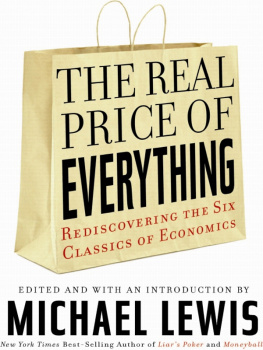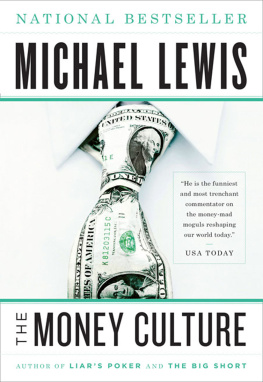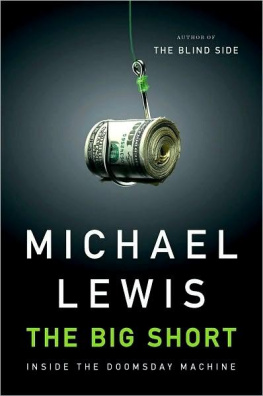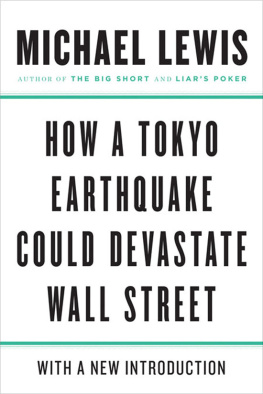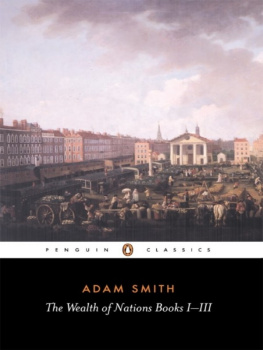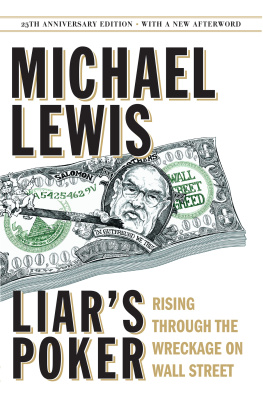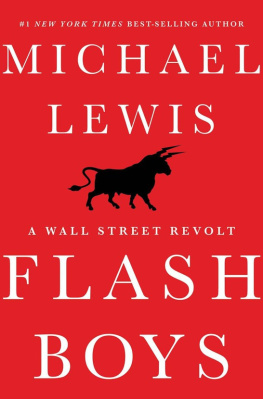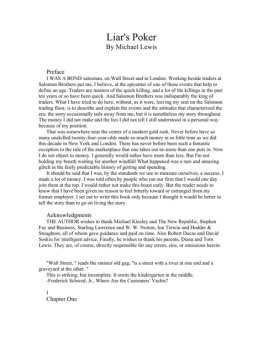
THE REAL
PRICE OF
EVERYTHING
Rediscovering the Six Classics of Economics
EDITED WITH AN INTRODUCTION BY
MICHAEL LEWIS

STERLING and the distinctive Sterling logo are registered trademarks of Sterling Publishing Co., Inc.
Library of Congress Cataloging-in-Publication Data Available
10 9 8 7 6 5 4 3 2 1
Published by Sterling Publishing Co., Inc.
387 Park Avenue South, New York, NY 10016
2007 by Michael Lewis
All Rights Reserved
Sterling ISBN-13: 978-1-4027-4790-8
Sterling eBook ISBN: 978-1-40279-218-2
For information about custom editions, special sales, premium and corporate purchases, please contact Sterling Special Sales Department at 800-805-5489 or specialsales@sterlingpublishing.com.
A Note on the Text

Each text included in this book is reprinted in its entirety from an early edition of the work, with the exception of Charles Mackays Memoirs of Extraordinary Popular Delusions and the Madness of Crowds, which is represented by the three chapters most frequently cited by economists. In order to ease readers comprehension of these texts, we have updated spellings and punctuation in most cases to make them consistent with modern American style. However, we have not incorporated corrections and updates made to later editions of the work except where noted.
The editors would like to thank Michael Regan and Rob McMahon for their editorial assistance and Monica Gurevich for creating the interior design concept.
The Editors
TABLE OF CONTENTS
by Michael Lewis
BY
MICHAEL LEWIS
I should preface this introduction with an apology to its subjects. I graduated from college with just two classes in economics, and the first, beginners macroeconomics, was such a snore that I almost didnt return for the second. But my senior year, while completely absorbed in what I took to be a more worthy course of study (art history), I discovered that, to graduate, I needed to fulfill a distribution requirement. The handiest solution was beginners microeconomics. I enrolled pass/fail, found a seat in the back row, and yanked a baseball cap down over my eyes, prepared both for torpor and a gentlemans D. Economics, I was now convinced, was less a course of study than a conspiracy of the old to drain the life from the young. Macroeconomics, so far as I could tell, had sought to explain the gross national product without so much as a peep about the actual human beings who created it. No nineteen-year-old in his right mind could be interested in the gross national product, but the economics department teemed with young droids who thought that they needed to be there to get a job on Wall Street. Princeton had no business school, and the economics department had been turned into a weak substitute, a signaling device used by Wall Street employers to identify the teenagers willing to sacrifice their college educations for the sake of their investment banking careers. The whole enterprise struck me as more than a little creepy.
And so the microeconomics professora dry wit named Uwe Reinhardtcame as a shock. He analyzed just about everything human beings did, and he seemed to me to be basically right about everything. He explained why drug dealing was so profitable (barriers to entry created by the law) and why lawyers were overpaid (barriers to entry created by lawyers). He explained one way in which a potato differed from a steak that had never occurred to me (as their income increased, people consumed fewer, not more, potatoes) and why authors were forever falling out with their publishers. (Their interests arent properly aligned: Publishers seek to maximize the profits from a book; authors, because they are usually paid a percentage of the gross, seek to maximize revenues.) Some of this Im making up; the class met twenty-five years ago, and I no longer remember all the details. But I recall feeling a jolt as clearly as if it happened yesterday, the horror that such a powerful tool existed for analyzing human behavior, and exposing the hidden connections between things. I remember thinking, If I dont find out more about this stuff, Im doomed. Everyone but me will understand why I do what I do.
A year later, I enrolled in a masters program in economics at the London School of Economics designed for people innocent of any actual knowledge of economics. It was there, in the open stacks of the Lionel Robbins Library, that I first read most of the contents of this book. What I liked about these books is what I liked about Uwe Reindharts course: They handed you a peculiar new lens through which to view the world. This anthology is called Value, and it has a lot to say on that subject, but its real subject is mans rare, original attempts to understand himself and his affairs. These writers arent always rightin many places they disagree with each otherbut even when theyre wrong, theyre interesting. Even the most spectacularly wrong of themMalthuss argument that, because human beings reproduced faster than their means of subsistence, they faced imminent mass starvationhas exerted a spectacular influence on human thought. I happened to read for my amusement Malthus on Population, wrote Charles Darwin, in the passage of his autobiography devoted to the origin of The Origin of Species, and being well prepared to appreciate the struggle for existence which everywhere goes on... it once struck me that under these circumstances favorable variations would tend to be preserved and unfavorable ones to be destroyed. The results of this would be the formation of a new species. Here then I had at last got a theory by which to work. John Maynard Keynes famously once said that even the most practical men lived their lives unaware they were in the thrall of the ideas of some dead economist. Here are those dead economists.
Reading these books chronologically, beginning with Adam Smith, you see how the earlier ones led to the later ones, how many of them seem to be part of the same great intellectual construction project. Or, rather, they are like a group of Russian dolls, each competing to be the big one that contains all the others. Twenty-two years after Smith published The Wealth of Nations, Thomas Malthus, the Eeyore of economics, sat down to explain why humanity was doomed. However, before he could lay out his argument, he needed to acknowledge that the most important argument that I shall adduce is certainly not new. The principles on which it depends have been explained by... Dr. Adam Smith. The next year, 1799, a stock market mogul named David Ricardo picked up a copy of The Wealth of Nations and was himself provoked to think systematically about economic problems. His Principles of Political Economy and Taxation, published in 1817, opens by trying to define value, which could only be done by first mentioning Adam Smiths famous distinction, between value in use and value in exchange. More than a century later another stock market speculator, John Maynard Keynes, wrote The General Theory of Employment, Interest and Money. In it he traced the history of the idea at its center: that saving does not necessarily lead to productive investment, and so, with resources idle, government intervention might be required to maintain full employment. The first echoes of his grand theory, Keynes writes, were to be found in letters written from Thomas Malthus to David Ricardo, and in Malthuss dilations on Adam Smith. (Adam Smith has stated, wrote Malthus, that capitals are increased by parsimony, that every frugal man is a public benefactor, and that the increase of wealth depends upon the balance of produce above consumption.... That these propositions are true to a great extent is perfectly unquestionable... but it is quite obvious that they are not true to an indefinite extent.) Ricardo, however, was stone deaf to what Malthus was saying, writes Keynes, as if, had Ricardo only viewed thrift with greater misgiving, Keynes wouldnt have had to work so hard to change mens minds about the inner workings of their economies. While laying the foundation, Ricardo could have sealed the crack before the castle went up.
Next page
